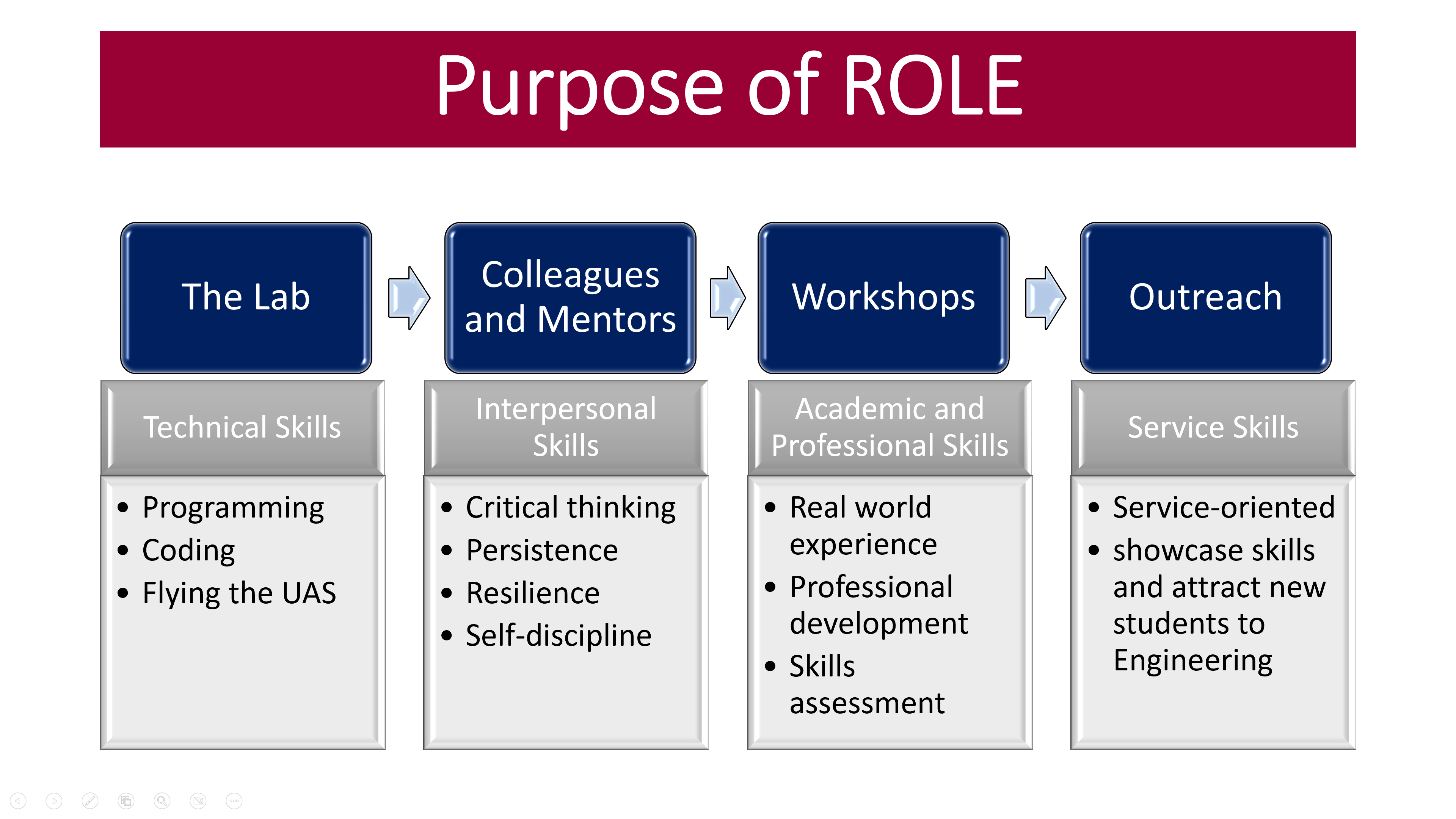About US
Research-Oriented Learning Experiences (ROLE) program
The development of a Research-Oriented Learning Experiences (ROLE) program at New Mexico State University (NMSU) will provide Latino/college students with the tools and knowledge required to succeed in Electrical and Computer Engineering (ECE) majors in particular, and in Science, Technology, Engineering, and Mathematics (STEM)-related degrees in general. ECE is a field of great relevance for our modern society, and where Latinx are commonly underrepresented. This project will encourage minorities, in particular Latina undergraduates to participate in high-impact research-oriented educational activities, where they will conduct research in collaboration with minority and/or Latinx graduate students and ECE faculty, leading to pathways to graduate programs. This project will also train Latinx graduate students to mentor a selected group of undergraduates, in order that they can strengthen and refine their mentoring and leadership skills, which are very useful in STEM-oriented academia and industry positions.
Benefits for participants:
· Higher degree interest and attainment will increase for Latinx undergraduate students in ECE and
· Latinx graduate students will feel better prepared to occupy leadership positions within their field either in academia or the private sector.
Place of performance:
· The research-oriented educational activities will be conducted at the Unmanned Systems Laboratory (USL), which is part of ECE, and partners with the six departments of the College of Engineering along with external collaborators, to conduct and promote interdisciplinary research, and to build a strong, sustainable research program.
The project activities will consist of three annual cohorts.
The impact of this study on the participants will be measured by means of a quantitative and qualitative approach:
· The quantitative portion will consist of pre- and post-experience surveys assessing undergraduate student expectations and learning outcomes.
· The qualitative component will include interviews and journaling. Four interview protocols for undergraduates, graduates, and faculty will be used. Graduate assistants and faculty will also record their experiences in journals.
The results from both approaches will help the research team to propose needed interventions to improve the activities of the program every year.
The project’s outcomes will include journal publications and presentations in professional meetings as well as sustained interactions with local Latinx community members. The measure of the work’s transformational impact and the value of the knowledge generated will be the extent to which these outcomes are subsequently cited, and spawn follow-on studies dedicated to supporting the development of a diverse and well-prepared engineering workforce.
